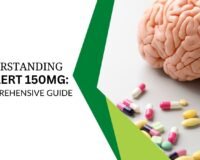Sleep is a crucial part of a healthy lifestyle. Getting a good night’s sleep helps us function properly, both mentally and physically, and ensures that our bodies have enough time to repair and rejuvenate. Unfortunately, not everyone can sleep well on their own, and some people turn to sleep pills to help them get the rest they need. While sleeping pills can be effective, they also come with a range of potential side effects that users need to be aware of.
One of the most commonly prescribed sleeping pills is zopiclone 7.5 mg, which is sold under various brand names, including Zopsign. Zopiclone is a sedative-hypnotic drug that works by enhancing the activity of the neurotransmitter GABA, which helps to calm the brain and induce sleep. While zopiclone can be an effective sleep aid, it also has several potential side effects that users should be aware of.
One of the most common side effects of zopiclone 7.5 mg is drowsiness, which can persist into the daytime hours and make it difficult for users to concentrate or operate heavy machinery. Other common side effects include headaches, dry mouth, and a bitter or metallic taste in the mouth. Users may also experience memory problems or confusion, especially if they take sleeping tablets in higher doses or for longer than recommended.
Some users may also experience more serious side effects, such as depression, anxiety, or hallucinations. In rare cases, sleeping pills UK may cause an allergic reaction, which can lead to symptoms such as difficulty breathing, hives, or swelling of the face, tongue, or throat. Users who experience any of these symptoms should seek medical attention immediately.
Another brand of zopiclone is Zopsign, which also contains 7.5 mg of zopiclone per tablet. Like other zopiclone products, can cause drowsiness, headache, and other common side effects. However, some users have reported experiencing more severe side effects with Zopsign, including anxiety, depression, and suicidal thoughts. In rare cases, Zopsign may also cause a serious skin reaction known as Stevens-Johnson syndrome, which can be life-threatening if left untreated.
In addition to these potential side effects, there are several other risks associated with sleeping pill use. For example, users may develop a tolerance to the drug over time, which can lead to dependence and withdrawal symptoms if they try to stop taking it. Sleeping pills can also interact with other medications, such as antidepressants or painkillers, which can increase the risk of side effects or cause dangerous interactions.
In conclusion, while sleeping pills like Zopiclone and Zopsign can be effective for treating insomnia, they also come with a range of potential side effects that users need to be aware of. These side effects can range from mild to severe and may include drowsiness, headache, depression, anxiety, and more. Users should always take sleeping pills as directed and report any unusual symptoms or side effects to their doctor immediately. If you are struggling with sleep issues, it is important to speak with a healthcare provider to determine the best course of treatment for you.







